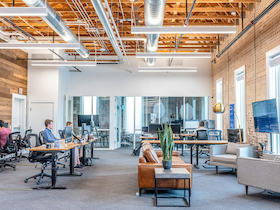

These operating partners, increasingly sought-after by venture capital funds and start-ups, are now entitled to their own training. To be a good operating partner, professional experience alone is not enough.
French Tech is full of new professions, not always very innovative, except for their job titles. But there is one that has been gaining in popularity in recent years: the "operating partner".
These seasoned professionals, either hired by investment funds to support their holdings, or recruited directly by the company's managers, are tasked with supporting start-ups in a variety of operational areas: sales, marketing, HR, governance, finance...
The number of operating partners in France has more than doubled in five years, rising from 76 to 185 between 2019 and 2024, according to a study by France Invest and Alvarez & Marsal. This boom raises the question of the skills needed to structure this still emerging role, as illustrated by the many "coaches" who have sprung up in France in recent years.
"We're seeing a number of people self-proclaiming themselves as operating partners on LinkedIn," remarks Franck Roger, who has just launched the Operating Partners Academy with a certificate of aptitude, designed to provide 150 hours of training for professionals. " You need both solid experience - often that of a former entrepreneur or senior executive - and the ability to embrace all the challenges facing a company", he continues.
On average, professionals in this field have 23 years' experience, 17 of which have been with a company.
"They've helped me a lot with structuring my management committee, human resources, sales team... They can intervene on a wide range of subjects and for a first-time entrepreneur like me, that's invaluable. But it has to be on request, not someone coming in and taking over the business for you", says Grégoire Hug, co-founder of start-up WeeFin.
In other words, posture counts as much as expertise: a good operating partner doesn't take the place of the manager, but accompanies him or her. He is a peer, not a superior.
"Fund-raising, pivot, international, moments of doubt... In all these pivotal periods, the operational experience of those who have already seen and experienced is key," stresses David Bitton, partner in charge of operational support at Serena, a venture capital fund.
But you still need to choose the right partner. " References and feedback from entrepreneurs are essential, but you also need to interview more and more people to find the right person," he advises. It's also better to focus on business knowledge rather than sector knowledge.
Another key factor is the start-up's stage of maturity. "For young start-ups, the key issues revolve around the product adapted to a market, whereas in Series A or B, the strength lies in sales and managing a board of directors. You need to find someone with the right experience for these situations", continues David Bitton.
With the end of easy money in French Tech priorities and support needs are changing. Whereas before 2022, fund-raising was legion, and it was necessary to change size and scale at breakneck speed, many start-ups are now rethinking their organization: divestment, cost-cutting, the quest for profitability, refocusing on customers and sales...
In this context, the wrong choice can cost the company dearly. " One of the main risks in taking on people who believe they have mastered all the levers of a company's performance is the loss of time and efficiency", observes Franck Roger. And time is one of a start-up's most precious assets.
Camille Wong


